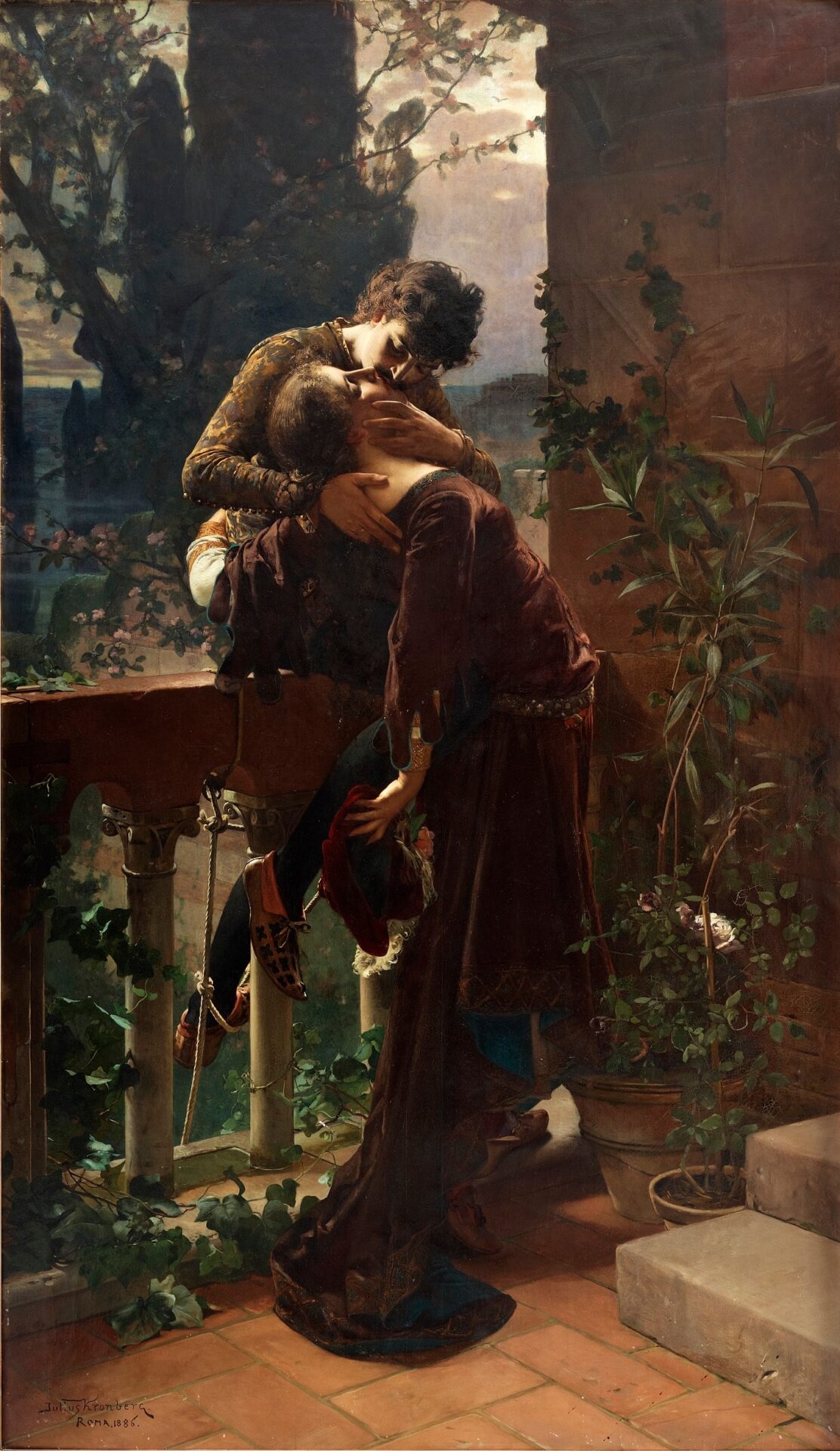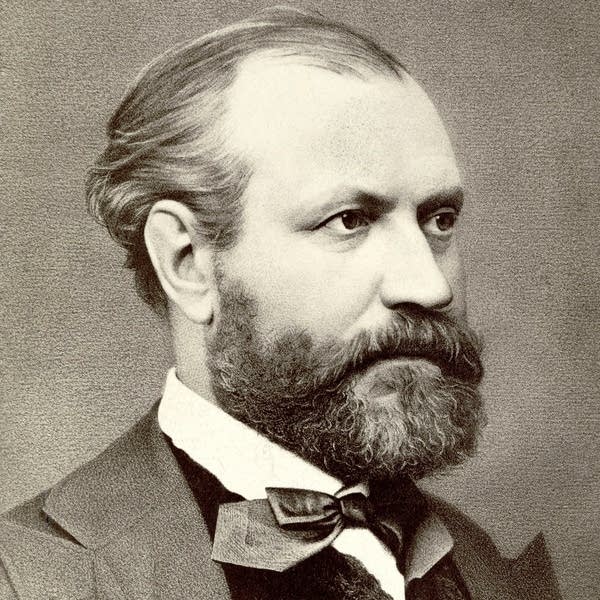Let’s just get it out of the way: I’m partisan. I have discovered no better playwright before Shakespeare and I know of none better who came after. If you want to know why I think this, turn to the books and lectures of Harold Bloom, and read the plays. About ‘Will the Real Shakespeare Please Stand?’ I have no interest. Which mortal hand held the pen is, at best, immaterial. All the candidates are dead. However, the plays are sitting, alive and well, on my bookshelf, and as everyone knows, the play’s the thing. Now, if you want to debate the number of angels that can dance on the head of a pin…
If you want to do something worthwhile, you might search on YouTube for “Romeo and Juliet 1976 Joan Kemp-Welch”. It’s the only uncut version of the play that, after hours of searching, I have been able to find. It surprised me… I had never before seen, on stage or screen, the final scene as it is printed in the play, nor had I ever seen the death of Paris, which came as an unhappy surprise. I guess life has always been too cheap.
Shakespeare composed between 35 and 40 plays, depending on who does the counting. Romeo and Juliet is his 14th, right after The Tragedy of King Richard the Second, and right before A Midsummer Night’s Dream, his first undoubted masterwork.

Romeo och Julia på balkongen Julius Kronberg, 1886
These three are considered the most lyrical of all his plays. Romeo and Juliet meet in a sonnet; he gets the first half and she the second. There is no prose in Richard II (my favorite of the history plays), and A Midsummer Night’s Dream defies description by me, I just don’t have the vocabulary.
In my high school days, I found there were barriers to my enjoyment of Shakespeare. The over-the-top metaphors (It is the east and Juliet is the sun) and constant interruptions with clever quips and smart-alecky asides were not for me. I had no patience for these wiseacre cracks that pulled me out of the action. And struggling through what is all but a foreign language kept the genius of the Bard beyond my horizon. But over time, I read all of Hemmingway, Dashiell Hammett, Ben Bova, and Orson Scott Card. Eventually, I may have been influenced by all the opera librettos I adapted for supertitles, but The Great Gatsby and Moby-Dick became favorite books. Edith Wharton and Virginia Woolf may have been conspiring to make a place for Proust in my impatient mind. And who could have guessed that a TV series, The Hollow Crown, would be my door to Shakespeare?
Even so, I still bristle somewhat at the Elizabethan obsession with unceasing word play. It distracts my attention, and most of the words I have to look up (I use the glossary Shakespeare’s Words by David Crystal and his son Ben) are in these clever insults, barbs, and pricks. Unfortunately for me, these asides and reposts were necessary at the time he wrote the plays. It was through quick-witted repartee, especially if it referenced classical plays and doubled down on sexy double entendre, that a person was marked as educated, sophisticated, and socially acceptable. This was a necessary social skill for aristocratic patrons, and it was they who made Shakespeare’s success possible. Sometimes, you have to go with the flow.

Charles Gounod
Of course, we’re not attending a play; we’re attending that insane, oftentimes profound, sometimes sublime hybrid of music and drama that is opera, and 19th-century French opera to boot, when feeling was making a big comeback. I should mention that Shakespeare fell out of favor in the 18th century, but, like Aeschylus, Sophocles, and Tina Turner, he made a comeback.
Charles Gounod was born just 202 years after Shakespeare died. He arrived on the Paris scene not long after the French Revolution had re-established extreme emotion, extraordinary love, grief, sorrow, and let’s not forget unquenchable fury, as suitable subjects for art.
The constrained, aristocratic 17th– and 18th-century tragedy was tossed out with the French royals,
and Shakespeare was back in the fold. French Romantic music was filling public opera houses and Gounod is inextricably a part of this movement. His principal areas of activity were teaching at the Paris Conservatory, where he taught Bizet, composing sacred music, and composing operas. Only two of his operas remain in the repertoire: Faust and Roméo et Juliette. Both have been successfully produced by Opera San José in the past.
A long time ago, the composer Robert Ward made a visit to San José when we produced his opera The Crucible, which is based on Arthur Miller’s play. Ward addressed an audience in advance of the opening and during his talk he explained that one-fifth of the syllables must be cut from an evening-length play to create a reasonable evening-length opera (he wasn’t thinking of Parsifal). Choosing which syllables to retain and which to leave on the cutting room floor is in the hands of the composer. It’s a tricky job, dividing what must be cut from what can’t be cut, kind of like sheep and goats, and I imagine it is very tricky when the playwright is Shakespeare, even before he was hailed as the greatest playwright of all time. I’m mentioning this so that you won’t be shocked if your favorite moments in the play didn’t make it to the opera stage. It wasn’t OSJ’s doing, and it likely wasn’t even his librettists, Jules Barbier and Michel Carré. This is on Gounod, and I don’t envy him. I guess that in opera the play isn’t the thing, at least not the whole play.
We all know that Romeo and Juliet is safely among the most effective dramas of all time. If you don’t believe me, ask Leonard Bernstein; it sure worked for him. That Roméo et Juliette is among the greatest adaptations of the play may yet to be proved, but with Shawna Lucey directing and Joseph Marcheso conducting, it has a very good chance.
and Shakespeare was back in the fold. French Romantic music was filling public opera houses and Gounod is inextricably a part of this movement. His principal areas of activity were teaching at the Paris Conservatory, where he taught Bizet, composing sacred music, and composing operas. Only two of his operas remain in the repertoire: Faust and Roméo et Juliette. Both have been successfully produced by Opera San José in the past.
A long time ago, the composer Robert Ward made a visit to San José when we produced his opera The Crucible, which is based on Arthur Miller’s play. Ward addressed an audience in advance of the opening and during his talk he explained that one-fifth of the syllables must be cut from an evening-length play to create a reasonable evening-length opera (he wasn’t thinking of Parsifal). Choosing which syllables to retain and which to leave on the cutting room floor is in the hands of the composer. It’s a tricky job, dividing what must be cut from what can’t be cut, kind of like sheep and goats, and I imagine it is very tricky when the playwright is Shakespeare, even before he was hailed as the greatest playwright of all time. I’m mentioning this so that you won’t be shocked if your favorite moments in the play didn’t make it to the opera stage. It wasn’t OSJ’s doing, and it likely wasn’t even his librettists, Jules Barbier and Michel Carré. This is on Gounod, and I don’t envy him. I guess that in opera the play isn’t the thing, at least not the whole play.
We all know that Romeo and Juliet is safely among the most effective dramas of all time. If you don’t believe me, ask Leonard Bernstein; it sure worked for him. That Roméo et Juliette is among the greatest adaptations of the play may yet to be proved, but with Shawna Lucey directing and Joseph Marcheso conducting, it has a very good chance.